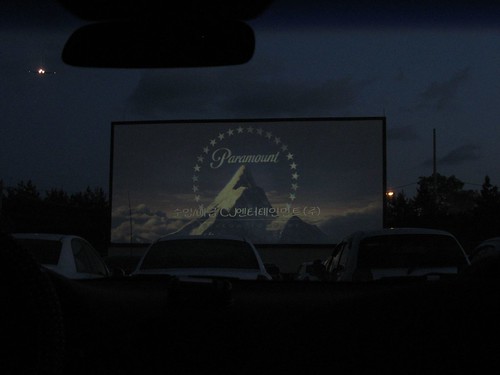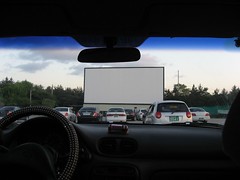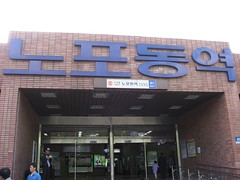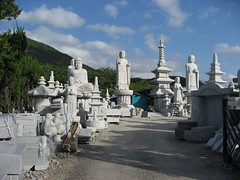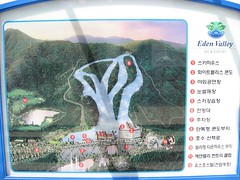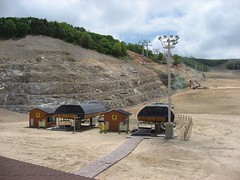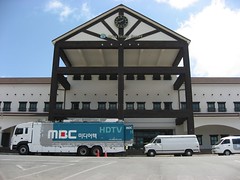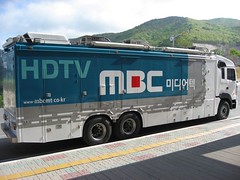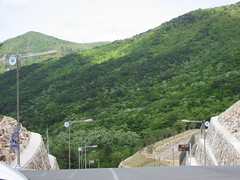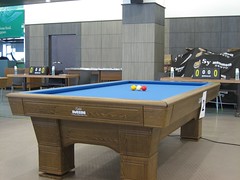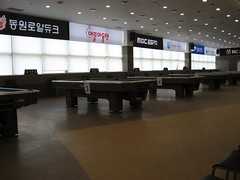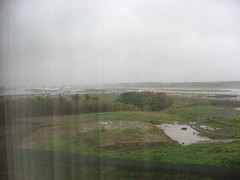We left our apartment in Busan for the final time on the morning of 14th May at 11am, and began our long journey back to England which, while relatively cheap, included a 17-hour wait between flights in Japan.
Scanned and Disintegrated
The journey began badly at Gimhae Airport where I lost a USB memory stick with all my passwords on it. I had to put it through the scanner in a tray, and then pull my laptop out of a bag to go through afterwards. When I got to the other side there was, mysteriously, no memory stick. Oddly, at first the security worker said he'd put it in my bag, but when I made more of a fuss and started emptying the contents of the bag to search for it, he changed his story to say that he'd never seen it at all. How does something disappear going through an airport scanner in a tray when there doesn't seem to be anyone else around? My files were encrypted but it still meant that on principle my first job once back home was to change all my passwords. Not a good start to the journey, and a lesson learned.
Memo: Narita Airport Completely Shuts At Night
While Typhoon Rammasun had missed a direct hit on the Japanese mainland, its effects were nevertheless felt as we endured a rather turbulent descent to Tokyo Narita. I was unsure if I could leave the airport with my soon-to-expire passport, so we hadn't booked a hotel in advance, but fortunately my attempt to enter the country passed off without a hitch, and for the first time in seventeen months, I found myself primarily responsible for communicating with the outside world, on the questionable basis that my Japanese language ability was better than my wife's.
A ten-minute bus-ride through busy urban roads in the heavy rain took us to a nearby hotel which despite our detour through real-Japan ironically transpired to be near the end of one of the airport's runways. We got a room, and armed only with a Visa card and no Yen, we ventured back to the airport later in the evening to scavenge for food. Now I make no attempt at passing myself of as some urbane and seasoned traveller, and therefore feel little guilt in admitting that in all my years of Japanese experiences I had missed out on one very important aspect of travelling within the country - Tokyo Narita Airport, the country's main point of entry and exit, shuts at night. In fact, while the last flights were still scheduled to make their way in and out at around eleven, I challenge you to find anywhere to eat at 10pm - everything was already closed.
You Know It's Bad When People Start Gasping
As we slowly climbed out of Narita the next day while the lingering periphery of the typhoon continued to dump a large amount of rain on anyone foolish enough to be outside below it, the British Airways staff bravely attempted to serve food what might best be described as a variable-gravity environment.
We landed at London Heathrow Wednesday afternoon British time, and for the first time since I left I suddenly and depressingly understood all the conversations going on around me. Sometimes it doesn't take you long to remember why living in a place where you don't can be a good thing.
Chest X-Rays
Another one to file away under
Beautiful Korea, Wonderful Immigration - my wife was briefly diverted by the authorities who needed to take a chest X-ray of her before allowing her into the country. Except that we'd arrived amidst the ongoing
Terminal 5 fiasco, so the X-ray machines weren't working and they had to take our details down for later harassment with a pen and paper, because neither were the computers.
Yes, just because we had to fight our way back into the country, doesn't mean to say that my wife isn't going to be treated with suspicion and hostility by the establishment. Welcome to the United Kingdom. The Health Service caught up with my wife two weeks later, made a great fuss about setting up an appointment for an X-ray, and once there - after over an hour of travelling and waiting - they asked her two inconsequential questions and told her that the actual X-ray would be done somewhere else, on another day. And it's for this staggering inefficiency we pay billions in taxes every year. Welcome back to the NHS.
One flight later we reached Manchester and the final leg of our journey began - down motorways where drivers didn't change lane every five seconds and through a strangely flattened landscape devoid of the mountains which have been our constant companions during our time in Korea.
Civilisation Is An Internet Connection
I don't intend to write in this blog about my experiences in England, but I do wish to illustrate some of the realities of the reverse culture shock which is re-assimilating back into your own society.
My Internet experiences in Korea have not been trouble free, but despite the problems one constant has been the level of customer service which has backed it up, even if they
couldn't always resolve our issues. British Telecom wanted to charge us £155 to fit an extra telephone socket in our attic for our ADSL connection - which is basically almost as much as an entire year of 100 megabit Internet cost in Korea - where Korea Telecom would, of course, fit extra sockets free of charge if required. We eventually got it done at half the price by an electrician, but it was still a shock, and since they didn't seem to want it British Telecom didn't get our custom.
So now I'm on an approximately 5 megabit connection and missing my 100 Korean megabits very much. To be fair, a 20 megabit service is available to some people in the UK via cable company Virgin Media, but since
they think that net neutrality is
'a load of b****cks', and
analysing customer browsing habits to insert adverts and
bandwidth-throttling are acceptable practices it's not an option. At least we're aware of them though. I don't know whether this kind of behaviour would provoke riots in Korea or whether the people there are generally so naive about Internet security that they wouldn't realise.
Civilisation is an Internet connection, and one that is capable of the speed advertised and that doesn't involve profiling me for commercial or other reasons at the same time.
That Didn't Take Long
So we broke our computers out of storage and needed to buy some more technical equipment, including a couple of new USB memory sticks. When the box arrived with one stick missing this led to a little unpleasantness from the UK online retailer Ebuyer, which I've used for years, who sent a message which seemed to imply some dishonesty, perhaps on my part. Worse, it was obviously a standard email, so by design this is how they talk to their customers. Would Hacker.co.kr have been so rude if this had happened in Korea? I can't see it happening personally.
It must be said though, we have more consumer rights in the UK and that is a comfort in the face of the state of war which usually exists between most British companies and the people who reluctantly have to buy things from them. I've resolved to video record all future parcel openings as I have better things to do with my time than debate package contents with companies.
But after seventeen months of speaking very little, bad online retail experiences notwithstanding, I found myself eagerly bantering with shop staff, which I'm sure I never used to do. Perhaps I'm like an almost drowned man breaking the surface and gasping for air, glad to speak to anyone. Well, apart from Ebuyer, British Telecom and Virgin Media anyway.
Food, Birds and Fish
It's good to be back in England and to see friends and family again. The food I've been pining for didn't taste as good as I'd imagined it would, but even the Tesco-bought frozen pizza surpassed almost all the Korean pizzas I tried.
I can actually hear birds singing in the garden outside, the air is wonderfully fresh especially after it rains, and I can enter the kitchen and look into the sink without fear of seeing several dozen tiny dead fish staring back at me from the plug-hole, which believe me, is a huge relief.
The Flipside of Dominick Hide
While it's only been three weeks, Korea is already a rapidly fading memory with my English life proving to be a hectic one so far, a fact not helped by the power unit on my computer blowing up and a succession of IT problems that I'm only just starting to get on top of. I have seventeen months of mail to sort through, a house to probably sell and a whole range of other tasks which are going to take some time and effort to complete - welcome home. I've decided that I will try and write up my backlogged blog entries and upload my remaining photos though - while it might seem so distant now it's almost like all these things happened to someone else - maybe I need to maintain some connection to it while I get my bearings in my new, old country. Meanwhile I'm getting back to studying Korean every day, because I know it's important to try and keep up to my language skills, but it certainly will be harder now I'm not exposed to the environment. Perhaps when I return to Korea I will have some kind of fluency in the language - one must have goals.
